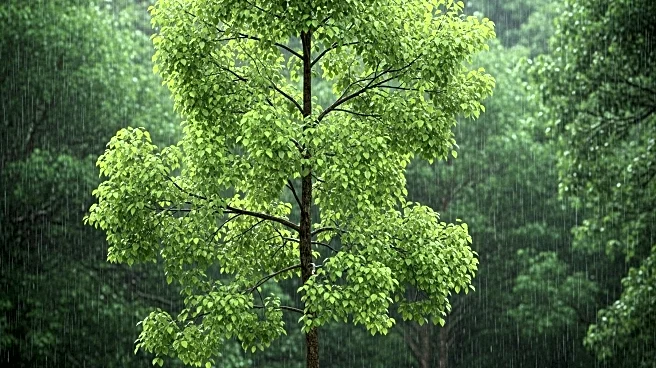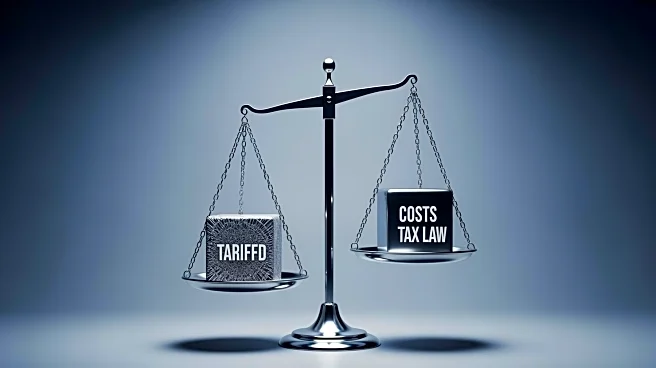What's Happening?
A recent study has found that deforestation in Brazil's southern Amazon region has led to a significant reduction in rainfall during the dry season. Researchers from Nanjing University and the University of Leeds analyzed deforestation impacts in the states of Rondônia and Mato Grosso, which have seen substantial forest loss since the 1970s. The study revealed that a 3.2% mean loss of forest cover resulted in a 5.4% decrease in dry season rainfall. This reduction in rainfall is attributed to disrupted atmospheric water cycles, where deforestation decreases evapotranspiration and weakens the atmosphere's ability to draw in moisture from other regions. The findings highlight the sensitivity of Amazonian precipitation to changes in forest cover, with implications for agriculture, water supply, and local communities.
Why It's Important?
The study underscores the critical role of the Amazon Rainforest in maintaining regional climate stability and water cycles. Deforestation not only impacts biodiversity but also poses significant risks to agricultural productivity and water availability. Reduced rainfall can lead to increased forest fires, poor crop yields, and water shortages, affecting both local communities and broader economic interests. The findings emphasize the need for sustainable land management practices and policies to mitigate the adverse effects of deforestation. As the Amazon continues to face threats from agricultural expansion and land clearing, the study calls for urgent action to preserve remaining forest areas and implement reforestation efforts.
What's Next?
The study suggests that addressing deforestation requires both local and global actions, including transitioning to greener energy sources and halting forest clearing. Policymakers are urged to develop contingency plans for droughts, improve weather forecasting, and implement sustainable water management strategies. Engaging farmers in conservation efforts and highlighting the ecological benefits of forests could be key to reducing deforestation rates. The researchers are conducting a follow-up study to assess deforestation impacts on rainfall since 2015, which may provide further insights into the long-term consequences of forest loss.
Beyond the Headlines
The implications of deforestation extend beyond immediate environmental impacts, affecting cultural and social dynamics in the Amazon region. Indigenous and traditional communities, who rely on subsistence agriculture, face challenges as changes in rainfall patterns disrupt their livelihoods. The study highlights the need for inclusive conservation strategies that consider the needs and rights of these communities. Additionally, the economic costs of deforestation, including potential agricultural losses, underscore the importance of integrating environmental sustainability into economic planning.









